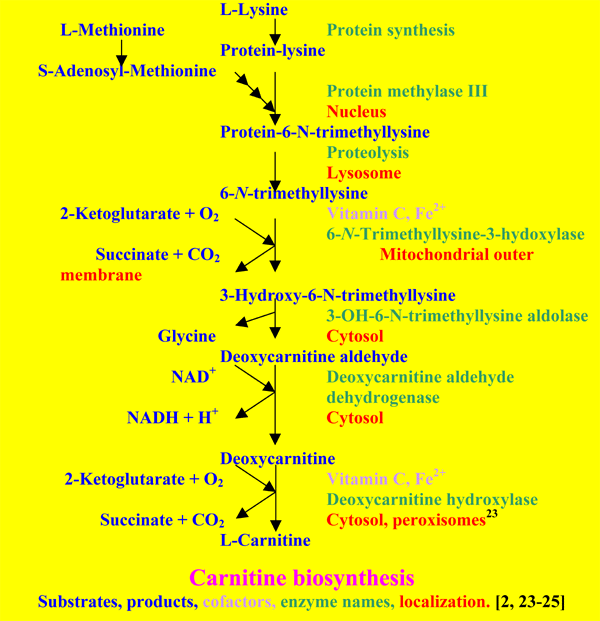Carnitine is a quaternary ammonium compound biosynthesized from the amino acids lysine and methionine.In living cells, it is required for the transport of fatty acids from the cytosol into the mitochondria during the breakdown of lipids (fats) for the generation of metabolic energy. It is widely available as a nutritional supplement.
Metabolism
Factors required for Carnitine synthesis
- trimethyl-lysine (on protein)
- 3 x S-adenosyl-methionine
- protein lysine
- Protein digestion in lysosomes
- Mitochondrial hydroxylation (outer membrane)
- Fe++, Ascorbate, 2- oxoglutarate
- Cytosol
- Cytosol, Peroxisomes
- Fe++, Ascorbate, 2- oxoglutarate

more details......

TMBADH
AL9A1_HUMAN
Carnitine synthesis
Carnitine Bristol UK
the enzymes.....
the corresponding genes ......
Function


THE GENES
Carnitine dependent metabolic pathways
more...
Capillary electrophoresis mass spectrometry-based saliva metabolomics identified oral, breast and pancreatic cancer-specific profiles, 2010
Choline supplementation reduces urinary carnitine excretion in humans. 1996
The kidney in regulation of plasma choline in the chicken., 1973
Synaptosomal phospholipase D potential role in providing choline for acetylcholine synthesis, 1985
mi piace la carnitina perchè mia zia la mangiava a pranzo